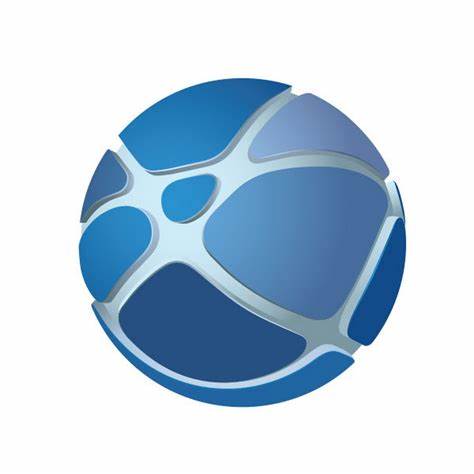Making continuing education for teachers more affordable and attainable
As technology, policy, professions, and students’ learning styles continue to change, teachers have to be agile enough to adapt their curriculum to account for those changes. To do so, teachers need to set aside time for research, education, and planning. Enter: Continuing education for teachers.
Why is it important to do continuing education?
Research has proven that better teaching results in higher student achievement. Makes sense, right? Continuing education for teachers increases their skillset by challenging them to
- Learn new and better ways to educate students
- Keep up-to-date with changes in technology and research
- Gain a deeper understanding of their subject matter
All of these factors impact a teacher’s performance, which in turn, impacts students’ performance. At the end of the day, answering “why is it important to do continuing education?” is analogous to asking “why did you get into teaching?” Because you care about providing a quality educational experience for your students that will set them up for success in life. Not to mention, continuing education is a crucial aspect of maintaining your teaching license and your job. Continuing education efforts are often quantified as CEUs.
What is a CEU?
CEUs, or continuing education units, are awarded to individuals who have completed approved programs or courses designed to improve their knowledge within their profession. For professionals who must maintain an industry license (teachers are included in this group), there is often a certain number of CEUs they must achieve to retain their license. In most cases, one CEU represents that the individual has completed approximately 10 hours of approved professional development or continuing education.
Do teachers need CEUs?
Yes, licensed teachers need to complete a minimum amount of professional development training or continuing education to maintain their licenses. In the past, school districts often provided continuing education for teachers to meet these minimum requirements; however, as budgets tighten and school districts have to stretch their funding further than ever before, teachers must take charge of their own professional development.
The number of CEUs a teacher must attain is set by the state that issued their license, and renewal requirements vary quite a bit from one state to the next. To make matters even more complex, most states have a multi-tiered licensing structure in which incoming teachers receive “initial” licenses and more seasoned educators apply for an “advanced” or “professional” license. Each of these different types of licenses come with their own requirements for continuing education for teachers. Visit your state’s department of education website for a list of continuing education requirements for teachers.
The federal government doesn’t exactly dictate CEU requirements for teachers the way that states do. But if your school receives federal funding through programs like the Elementary and Secondary Education Act (also known as No Child Left Behind) or the Common Core State Standards, then you will have some specific professional development requirements to meet in relation to those programs.
How do you get continuing education credits?
Certain courses, online activities, in-person training sessions, and more are authorized to provide CEUs to professionals upon their completion of the learning event. While there are hundreds of ways to get your CEUs, the trick is finding the opportunities that’ll fulfill your professional goals and your state’s licensing standards. When searching for continuing education for teachers opportunities, ask yourself the following questions:
- How many CEUs will I receive?
- Does my state accept those CEUs?
- Will I need to travel?
- Will the learning event take away from time in the classroom?
- Am I interested in the content?
- Is the learning event relevant to my subject and my goals as an educator?
Pursuing professional development outside of CEU requirements
While achieving CEUs is an important part of renewing your teaching license, continuing education for teachers is about much more than meeting minimum requirements. As industries shift and technology changes, so should teaching practices and curriculum. Continuing education for teachers ensures that you remain on the cutting edge, so your students benefit from an educational experience that prepares them for the workplace as it is, not as it was years ago.
Professional development grants for teachers
While there are some free opportunities for educators to get CEUs, most continuing education for teachers comes with a price tag. If you’re looking to increase your proficiency in a particular topic area but you don’t have the funding, this list of grants is for you!
FirstEnergy Education STEM Grant Program
- Application deadline varies year-to-year
- Amount awarded: up to $1000
- This continuing education for teachers grant is available to STEM educators (Pre-K through grade 12) at schools, youth groups, and educational program administrators in communities served by FirstEnergy’s electric operating companies, other areas where the company has facilities, and where they do business in Ohio, West Virginia, Pennsylvania, Maryland, and New Jersey.
Albert Einstein Distinguished Educator Fellowship (AEF) Program
- Applications due mid-November
- Amount awarded: $7,500 monthly stipend; $5,000 for travel; $1,000 other approved expenses
- This continuing education for teachers opportunity is earmarked for K-12 teachers who have at least five years of experience teaching in STEM subjects. The AEF program provides educators with 10- or 11-month positions in federal agencies or U.S. congressional offices across the country. During this time, the fellows have a direct impact on educational programming, policy, and reform efforts.
Emerging Teacher-Leaders in Elementary School Mathematics Grants
- Applications due early November
- Amount awarded: Maximum of $6,000 per teacher
- The National Council of Teachers of Mathematics (NTCM) provides this grant for math teachers in grades pre-K through fifth grade who have demonstrated a commitment to strengthening their own teaching methods and applying innovative new ideas to their classrooms. Applicants must have the support of their principals and be members of NCTM. Grant money can be used for continuing education for teachers, including college coursework, fees associated with attendance at national conferences, and material resources.
Fulbright Teachers for Global Classrooms Program (Fulbright TGC)
- Applications open in December
- Amount awarded: Skills development and travel
- The Fulbright TGC is a year-long professional development opportunity for U.S. elementary, middle, and high school teachers to develop skills for preparing students for a competitive global economy. Fulbright TGC equips teachers to bring an international perspective to their schools through targeted training, experience abroad, and global collaboration.
Fund for Teachers
- Applications due late January
- Amount awarded: varies
- Fund for Teachers supports educators’ efforts to develop skills, knowledge, and confidence that impact student achievement. By trusting teachers to design unique fellowships, Fund for Teachers grants validate teachers’ professionalism and leadership.
Inspire Our Future Scholarship
- Applications due in April
- Amount awarded: $500
- Teachers.org believes that teachers have the power to inspire the future. They support new and seasoned teachers through their scholarship, which is designed to help pay for continuing education for teachers and other associated expenses.
Knowles Science Teaching Foundation Fellowships
- Applications accepted September through January
- Amount awarded: Not specified
- The Teaching Fellowship Program supports new high school math and science teachers. It’s one of the most comprehensive teaching fellowships in the nation, providing tuition assistance, monthly stipends, support for continuing education for teachers, and grant money for technology in the classroom.
NEA Learning & Leadership Grants
- There are multiple deadlines throughout the year between June through October.
- Amount awarded: either $2,000 or $5,000
- Through NEA’s Learning & Leadership grants, they support the professional development of NEA members by providing grants to individuals for continuing education and to groups for collegiate study. Deference is given to proposals that include STEM.
Teacher-Leader Professional Learning Grant (Pre-K-12)
- Applications due early November
- Amount awarded: $4,000
- The purpose of this grant is to provide professional learning assistance for mathematics teachers and mathematics teacher-leaders. Professional learning must focus on one of NCSM’s signature initiatives, Formative Assessment, Digital Learning or Access-Equity-Empowerment.
Teacher Professional Development Grants (6-8)
- Applications due early November
- Amount awarded: Maximum $3,000 per teacher
- The purpose of this grant is to support professional development to improve the skills of mathematics educators. Applicants must be members of the National Council of Teachers of Mathematics (NCTM) and have three or more years of experience teaching at the 6th- through 8th-grade level.
The Grosvenor Teacher Fellow (GTF) Program
- Applications due in January
- Amount awarded: Chosen teachers get to travel on Lindblad Expedition’s voyages for field-based learning
- The GTF Program is a professional development opportunity for pre-K through 12th-grade educators. The chosen educators complete a series of deliverables that enable them to transfer their onboard experience into new ways to teach students and engage colleagues. Through this experience, they bring new geographic awareness into their learning environments and communities.
The McCarthey Dressman Education Foundation
- Applications open mid-January and close after 200 applications have been received
- Amount awarded: Maximum amount is $10,000 a year for three years
- This grant aims to increase the effectiveness of individual educators and small teams of teachers. Eligible proposals are those that enhance student learning and educational quality, paying particular attention to those that best serve the at-risk and underfunded. The foundation will fund a total of 125 grants for continuing education for teachers.
The Presidential Awards for Excellence in Mathematics and Science Teaching (PAEMST)
- Nominations due in January; applications due in February
- Amount awarded: $10,000 and a paid trip to Washington, D.C.
- The Presidential Awards for Excellence in Mathematics and Science Teaching (PAEMST) are the highest honors bestowed by the United States government specifically for K-12 mathematics and science (including computer science) teaching. The award recognizes those teachers who have both deep content knowledge of the subjects they teach and the ability to motivate and enable students to be successful in those areas.
Voya Unsung Heroes Grant
- Applications due in April
- Amount awarded: $2,000 to 50 recipients; three recipients will be awarded additional bonuses
- Each year, 100 finalists are selected to receive a $2,000 grant, payable to both the winning teacher and their school. At least one grant is awarded in each of the 50 states, provided they receive at least one qualified application from each state.
Resources
























